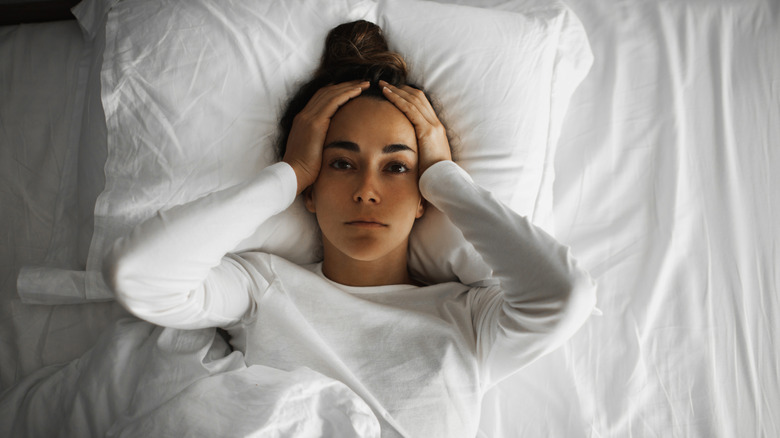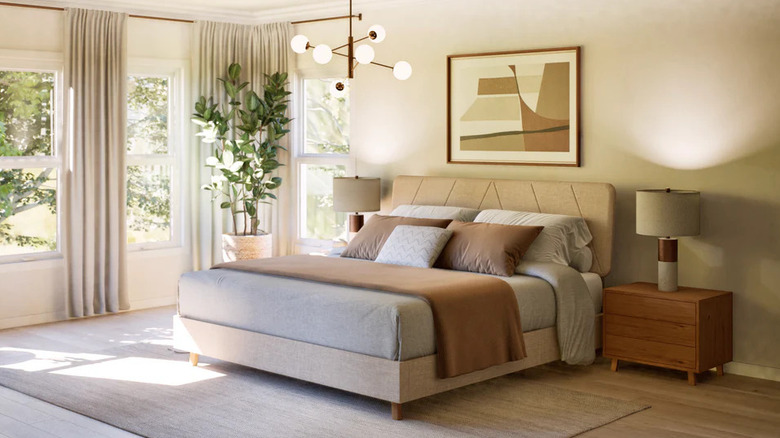The Major Downside To Shark Tank's AirTulip For Cleaner Air At Home
We may receive a commission on purchases made from links.
There's no doubt that inventors are solving serious problems with the products they pitch on "Shark Tank." Arjen de Jong, the founder of AirTulip, introduced the Sharks to a revolutionary air-purifying headboard. During the pandemic, de Jong grew concerned that even the best air purifiers weren't ensuring the cleanest possible air while you sleep. "I realized most people sleep breathing dirty air," he explained on the AirTulip website. After using his aerospace engineering background to develop prototypes of his product, de Jong launched a Kickstarter campaign before finding a fan in NFL Pro Bowler Matt Judon, who used the product to support his daily recovery. A headboard that sends a silent but strong stream of air around our heads to minimize allergies and respiratory stress makes perfect sense. But we're not sure you'll be breathing easier after you realize how much it costs. Starting at $1,990, the lack of affordability is one major downside to Shark Tank's AirTulip.
A far cry from some of our easy DIY headboard ideas to upgrade your bedroom, the AirTulip is a precision product that comes at a premium price tag. At first glance, the minimalist headboard looks pretty straightforward. Available in a gray or beige color, the AirTulip headboard comes in twin, queen, or king sizes. A large base supports a minimalist fabric-covered rectangle with a subtle nod to the product's name in the upholstery lines. But the costly technology is hidden within the base itself.
Limited batch craftsmanship and medical-grade filters drive the price up
You don't have to look far to find a high-tech headboard. Featuring USB ports to charge your phone, power outlets for your alarm clock, and adjustable LED lights that help you set the perfect mood, over 1,000 Amazon customers have purchased the GREENSTELL Headboard for less than $150. The AirTulip costs over 10 times as much, in part because each one is hand-built in the United States. The manufacturing process includes 3D-printed aerodynamic fan blades, medical-grade filters, and a structural honeycomb composite core that helps the headboard maintain its shape while dampening noise from the mechanics inside. It's a far cry from mass production, and each product is individually reviewed and signed off by the maker, another factor that drives up the price.
Another contributor to the AirTulip's high cost is the replacement filters, which have to be changed quarterly. If you decide to splurge on an AirTulip for your king-sized bed, even if you opt for the subscription, you'll still be paying $570 a year just for filters. De Jong and his team are skeptical that standard HEPA filters actually work adequately when it comes to the air you breathe all night long, opting to use H14-rated filters in the AirTulip instead. They're the same ones used in medical and pharmaceutical manufacturing environments. Although nasty airborne particles are likely to fill up your AirTulip filter, the overall cost of the product will certainly drain your bank account.

